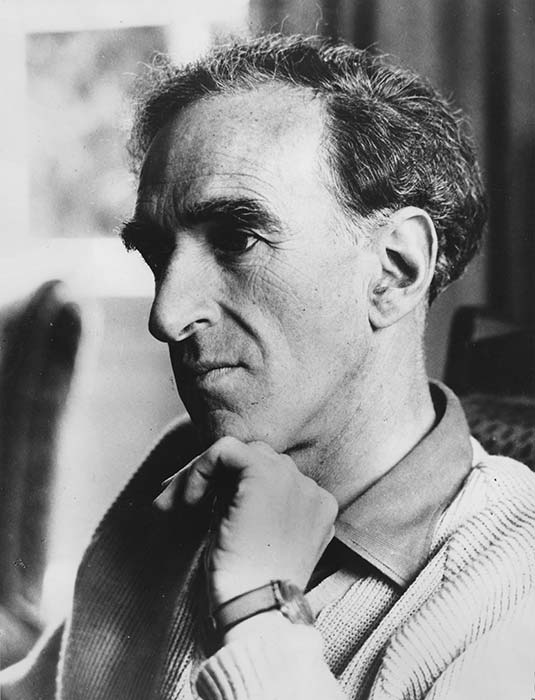

Queer Places:
University of Oxford, Oxford, Oxfordshire OX1 3PA
Bletchley Park, 30 Roche Gardens, Bletchley, Milton Keynes MK3 6BN, UK
36A Heriot Row, Dunedin, 9016, New Zealand
 Charles Orwell Brasch (27 July 1909 – 20 May 1973) was a New Zealand poet,
literary editor and arts patron. He was the founding editor of the literary
journal Landfall.
Charles Orwell Brasch (27 July 1909 – 20 May 1973) was a New Zealand poet,
literary editor and arts patron. He was the founding editor of the literary
journal Landfall.
Brasch was born in Dunedin, the son of lawyer Hyam Brasch (who later changed his name to Henry Brash) and Helene Fels, a member of the prominent Hallenstein family of clothing merchants. He began writing poetry at Waitaki Boys' High School and entered St John's College, Oxford, in 1927 where he gained an 'ignominious third' in Modern History (to his father's disappointment[1]). His contemporaries at Oxford included W. H. Auden and Cecil Day-Lewis.
After Oxford he returned to Dunedin via Italy in 1931. Finding that working in the family firm (Hallensteins) "does not suit" he returned to England in 1932, and to three archaeological seasons in Egypt at Tel el Amarna between Cairo and Luxor.[2] England again in 1936, Dunedin in 1938 then he traveled by rail with Ian Milner east across America.[3][4] He taught at the Abbey School for "problem children" at Little Missenden in the Chiltern Hills and looked after his sister Lel (Leslie) who died after three years of illness in 1939.[5]
Firewatching and intelligence work: In May 1940 he acknowledges that he is no longer a pacifist, and registers for military service on 6 July. in February 1941 he was rejected by an Army medical because of emphysemia and started Firewatching duties. Then on 27-28 June 1941 he did his last firewatch. Through Colin Roberts a student friend from Oxford he obtained a "Foreign Office" job at the intelligence centre at Bletchley Park (BP) on 27 June 1941; "taking the oath" at BP on 3 July.[6]
He worked in the Italian section under Frederic Catty and Frank Hammond in the redbrick Elmers School building; he learnt Romanian and his position was described as Head of Romanian and Italian. His salary increased over the war from £350 to £450 plus a £60 war bonus.[7] He described BP as Kafkaesque; with rivalry and indecisiveness they could not replace an old unsafe stove until it set the room on fire. One wit declared that BP only needed a few eunuchs to resemble the last years of the Byzantine court. He shared lodgings with Roberts at the nearby village of Soulbury.[8]
In March 1942 the unit moved to the Diplomatic building in Berkeley Street, London. He moved into Lawn Road Flats, where Denis Glover had a bedroom when on leave from the Navy. He resigned from the FO from 31 August 1945, and arranged to return to New Zealand in December.[9]
Brasch returned to New Zealand in 1946, settling in Dunedin. He had held the ambition of publishing 'a substantial literary journal' in New Zealand for at least 15 years,[1] and in 1947 he founded Landfall, remaining its editor for the next 20 years.[10]
In later life he was a substantial patron of arts and letters, and was involved in the establishment of the Robert Burns Fellowship at the University of Otago. He was also a patron and contributor to the Otago Museum; in this he followed in the footsteps of his grandfather, Willi Fels. His significant library, which reflected his interest in literature, art, history and religion, was donated to the University of Otago Library in 1973.[11] The wide and eclectic nature of his reading allowed him to achieve his own substantial output.[12] His archives[13] are housed at the Hocken Collections, where over 400 artworks gifted by him can also be seen.[14][15]
He died of cancer in 1973.
My published books: